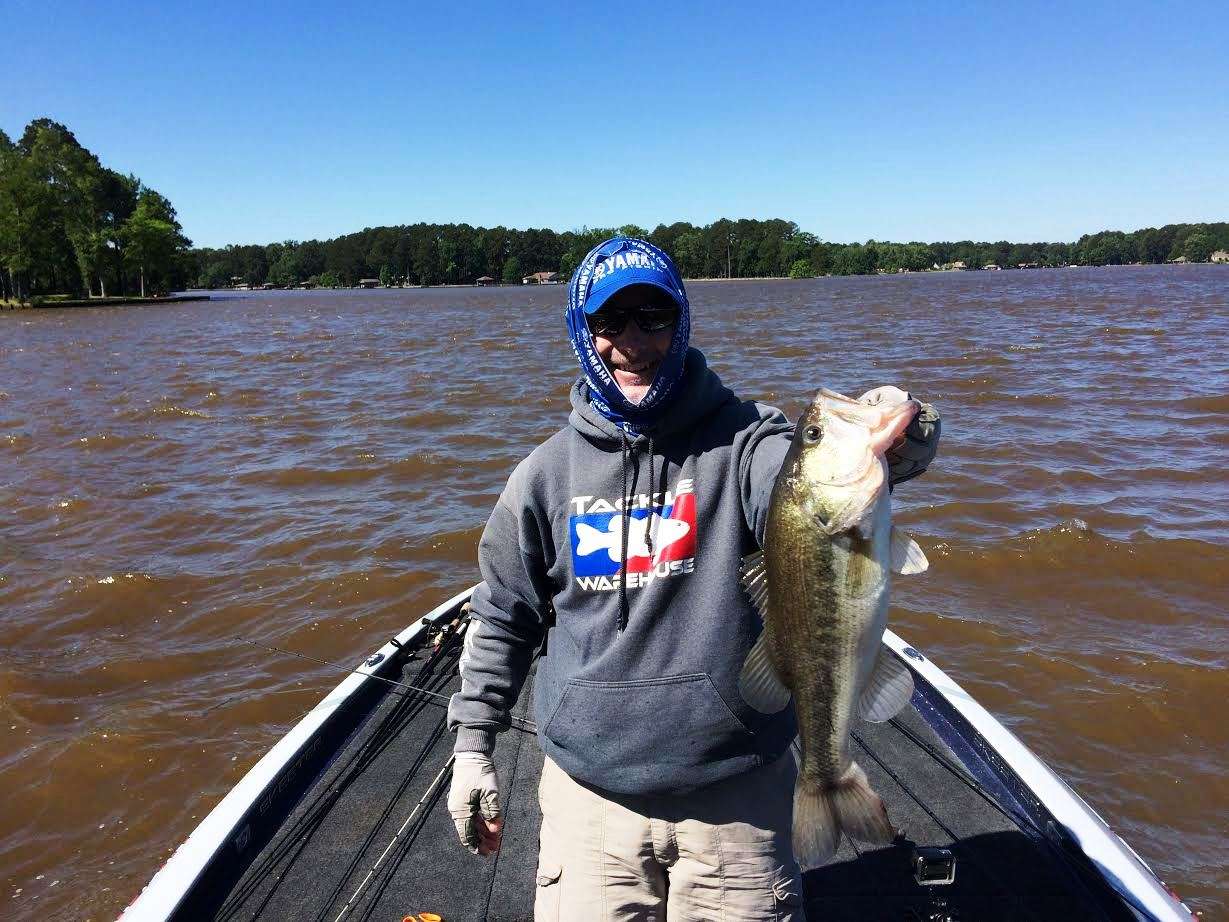
Before we get into the specifics of why cold water — for short periods of time — is good for bass, I want to talk a little about what happens to feeding patterns when their environment gets cold. That’s a part of the big picture.
A common myth is that bass become lethargic and don’t move very much. That’s partly true but not totally true. What really happens is that they can’t swim at a high rate of speed for a long distance. As a practical matter they won’t (can’t) chase down a crankbait running 50 feet away from them.
But don’t kid yourself: They’re still able to make quick movements that’ll allow them to capture and eat forage. They might not be able to go 50 feet but they can darn sure go 5 feet, and they can do it quick. They’re still efficient predators. And remember, whatever they’re chasing is just as cold as they are so it’s a pretty even match in the world of eat or be eaten.
What cold water actually does is slow their metabolism down. That metabolic slowdown is a big part of why you see some parts of the country producing giant bass and other parts only producing big ones.
In hot parts of the country where the water never gets cold the bass are moving and eating all the time. That makes them easier to catch (sometimes), but it also wears their bodies out. They never get a chance to rest and recuperate.
In those regions you’ll see huge numbers of bass in the 7- to 10-pound range, but you’ll rarely see one that tips the scales in the teens. They don’t live long enough, and they work too hard all of their lives.
Compare what’s happening with them to human life. Most of us can go a couple of days without much sleep or any meaningful rest, but at some point we need to sleep, rest and recuperate. If that lack of sleep and rest was happening for months or years on end without rest, our lives would be shortened. Our bodies would wear out prematurely.
The opposite happens in cold climates. The warm water growing seasons are short so the bass don’t grow nearly as big, but they tend to live longer. As crazy as it sounds they have an easier life.
On the other hand in places where the water’s warm most of the time, but not always, you’ll see fewer big bass but more giants. They’re splitting the difference between eating all the time and eating for only short periods of time.
Southern California is the prime example of what I’m talking about.
I’d guess that the giants out there eat about every three days when the water gets cold, say down into the 40s. They’re big and so they eat big. Then they sit and rest doing very little except working the couch potato thing.
That rest period is good for them. It lets their bodies recharge and allows them to heal if they have any injuries. They don’t have to spend their time searching for more food because their metabolism has slowed way down. They need rest, not food.
If you want to get a better understanding of how this all works together to grow big bass and giant bass, take a look at the state largemouth bass records. Compare and contrast weights with climate. You’ll see quick enough what I’m talking about.
Of course there’s more to all of this than simply cool water rests. The quality of the forage a bass is eating, along with how easy that forage is to catch, makes a big difference in their growth potential. Genetic makeup is a huge factor, too. We’ll talk more about those things in future columns.

